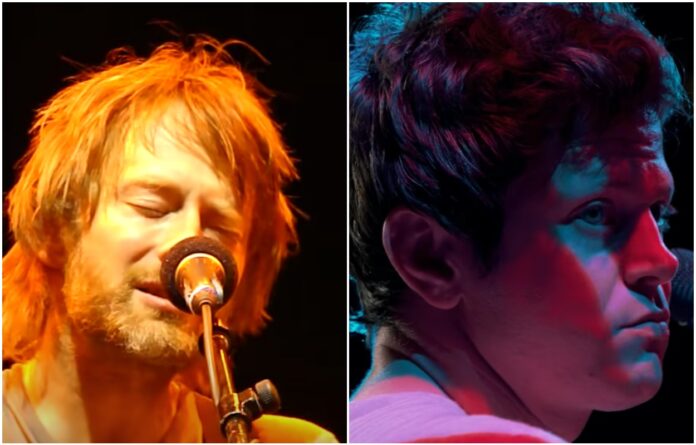If you’re like me — fraught with the anxiety of getting older and realizing that you’ve yet to achieve even a fraction of what you thought you would at your age — you might spend a lot of your nights looking back, ruminating on all the people you’ve been emotionally and/or physically liaised with over the course of your life and thinking about how they have shaped you into the person that you are today.
Or you might be stultifying your senses and endlessly pondering why you have such thirst for romance — in stark contrast to your peers’ perpetual hunger for fun, for instance — all the while fearing your proverbial well is on its way to drying up. Chalk it all up to Venus Retrograde, I guess.
On that note, as of late I find myself (yet again) revisiting Radiohead’s “True Love Waits,” the stately, scenic closer from 2016’s A Moon Shaped Pool (allegedly the iconic group’s swan song) and a long-standing fan-favorite. It took them only 21 years to issue the song in studio recording form after its live debut.
By the time the studio version of “True Love Waits” was unleashed, frontman Thom Yorke’s decades-long relationship with his former partner — the muse behind the song — had dissolved, rendering a whole lot more weight and resonance than intended to the rolling, cacophonous piano-only treatment.
Yorke’s airy, world-weary interpretation is also far removed from his earlier, more passionate takes of the song, as if quietly resigning himself to the end of the affair. His plea for the other party not to leave is now all but a languished attempt at holding on to what was once was, but knowing that it’s no longer there anyway.
At its core, though, “True Love Waits” is a queer romantic: it’s not concerned with the classic, traditionalist trappings of romance. Instead, its declaration of devotion arrives in the form of having proverbial babies and wearing dresses, sex and gender aside and that true love is found in the unlikeliest of places (“haunted attics”) and most mundane of objects (“lollipops and crisps”).
Upon rediscovering the song, I was instantly reminded of Perfume Genius’ “Alan,” an ode to unexpected domestic bliss. Like his baroque pop forbears Rufus Wainwright and Antony Hegarty, Mike Hadreas has been crafting terse piano ditties for the better part of last decade, laden with witty, morose musings and malapert manifestos on the queer life: “No family is safe / While I sashay,” he quips on 2014’s brash “Queen.”
“Alan,” however, walks on the more personal side. Named after Alan Wyffels, his partner of nearly 20 years, not only does the song share similar sonics with “True Love Waits” — twinkling, reverbed piano lines and grand, airy synth abound — both songs also conjure up something of a mise en scène when played back-to-back: while “True Love Waits” is the heaving in suspense, “Alan” is the hard-earned sigh of relief.
Given Hadreas and Wyffels’ tumultuous trajectory (the pair met at Alcoholics Anonymous and stuck with each other until their eventual recoveries before becoming musical collaborators), it’s only fitting that “how weird” constitutes the song’s soaring hook; this is not a relationship that on paper should work — let alone for as long as it has — yet somehow it does. The sense of security still feels peculiar given how hard-earned it is.
That “Alan” was released nearly a year after the studio version of “True Love Waits” is nothing short of a cosmic coincidence; it’s as though the former’s repeated reassurance that the protagonist “is here” after the latter’s multiple pleas of “just don’t leave” is keenly aiming to prove that staying is, after all, the purest marker of true love.
When you think about it, at the end of the day, doesn’t it all boil down to the one who’s willing to stick it out — and stick around — for you?
